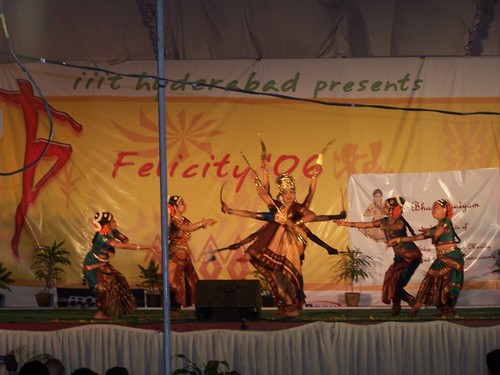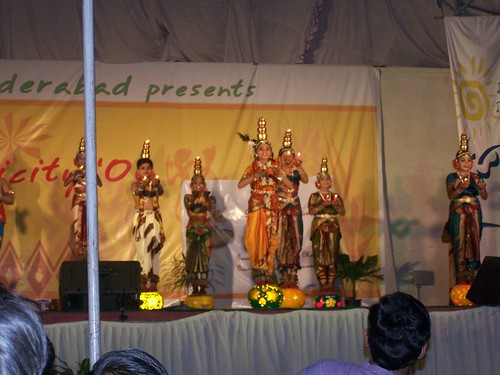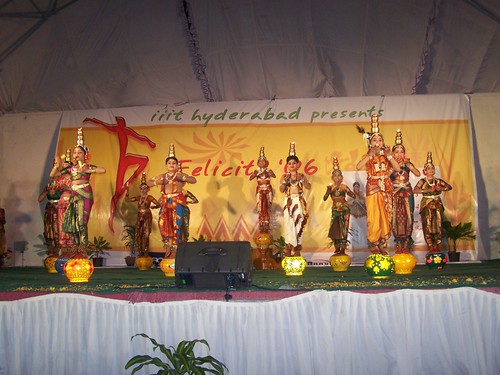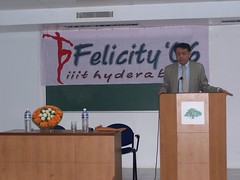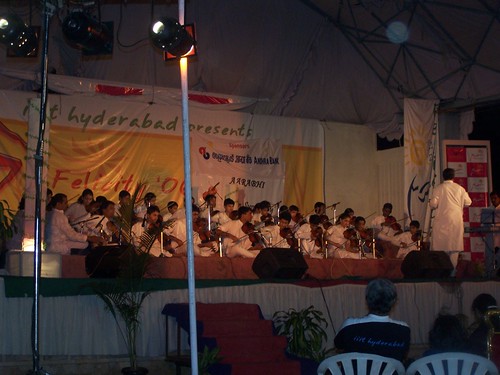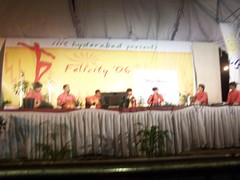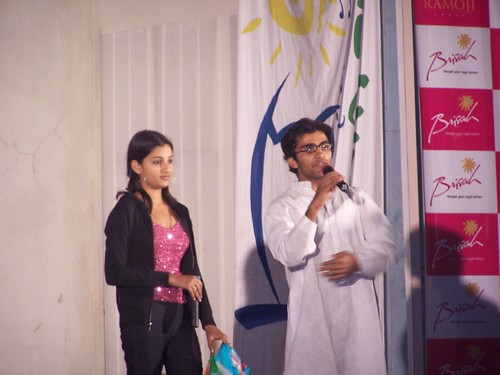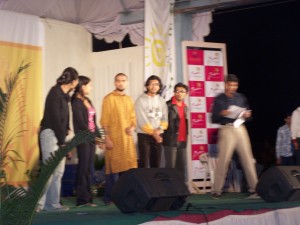Came across a blog on Googles' blog blogroll. This man seems to be really involved in lot of technological stuff, talks about IMac, Apple, Linux, KDE, Gnome, Perl, Python, Ruby and on and on, he is just an amazing geek.
Well the topic basically is about TOO MANY CHOICES. His blog had a post on Perl to Python, Sure. But Ruby? very interest point raised. I totally agree with the fact that too many choices and too much internal competition in Open Source world sometimes keep us away from reaching the best possible output/Softwares.
As a user, I sometimes feel good to have many choices, but at other times it pisses me off, when I see my distro just removing some application from the package and putting another alternative one. The commands which I learnt and softwares which I became very comfortable with cease to come packaged in to the Fedora Core CD all of a sudden. All the time the number of Image Viewers keep fighting internally, whichever gets a bigger userbase/developerbase or possibly endorsement by a distro packagers makes it to the Distro. Same happens with Media players, with Window Managers.
Window managers play an important role in software duplication, KDE provide its own set of apps for Multi protocol chat, browsing, File-management, Image Viewing(kuickshow, showimage, showfoto ...), media player and Email Client(Kmail) while Gnome provides its own set of apps for the same tasks. No wonder users of one WM like application developed for that WM because they interact well with the WM. Wait I forgot to add another set of apps, lets call them Xapps, that application which run on both of them equally well, this include Xpdf, Xchat, Xmms and so on. Now there will be three application for each task, you can use whatever ur distro provide by default, or have to go through the pain of installing ur favourite from net, which might not be very simple all the time.
Wouldn't these application's development be faster had they shared development efforts? Wouldn't they have had a better user-base had they been overall good?
As a developer too its always confusing which platform to choose, If I write an app on KDE platform, I miss the Gnome userbase, and vice versa. How good would it be if I can write an app which works equally well in both the WMs. I don't know what kind of standardization could be done, but something need to be done immediately to make sure we can combine our efforts rather than just divide them.
The latest news in regards to standardization is that, X Server seems to be going in to two possible branches. (Xgl and AIGLX). As much as Sound Servers used to suck due to incompatibility, its probable gonna be Xserver times to do so.
On the other front, Beegle's code is now being cleanly interfaced in to UI and NonUI parts so that even KDE can use it. I did miss it earlier and would really love to use it now.
Well the topic basically is about TOO MANY CHOICES. His blog had a post on Perl to Python, Sure. But Ruby? very interest point raised. I totally agree with the fact that too many choices and too much internal competition in Open Source world sometimes keep us away from reaching the best possible output/Softwares.
As a user, I sometimes feel good to have many choices, but at other times it pisses me off, when I see my distro just removing some application from the package and putting another alternative one. The commands which I learnt and softwares which I became very comfortable with cease to come packaged in to the Fedora Core CD all of a sudden. All the time the number of Image Viewers keep fighting internally, whichever gets a bigger userbase/developerbase or possibly endorsement by a distro packagers makes it to the Distro. Same happens with Media players, with Window Managers.
Window managers play an important role in software duplication, KDE provide its own set of apps for Multi protocol chat, browsing, File-management, Image Viewing(kuickshow, showimage, showfoto ...), media player and Email Client(Kmail) while Gnome provides its own set of apps for the same tasks. No wonder users of one WM like application developed for that WM because they interact well with the WM. Wait I forgot to add another set of apps, lets call them Xapps, that application which run on both of them equally well, this include Xpdf, Xchat, Xmms and so on. Now there will be three application for each task, you can use whatever ur distro provide by default, or have to go through the pain of installing ur favourite from net, which might not be very simple all the time.
Wouldn't these application's development be faster had they shared development efforts? Wouldn't they have had a better user-base had they been overall good?
As a developer too its always confusing which platform to choose, If I write an app on KDE platform, I miss the Gnome userbase, and vice versa. How good would it be if I can write an app which works equally well in both the WMs. I don't know what kind of standardization could be done, but something need to be done immediately to make sure we can combine our efforts rather than just divide them.
The latest news in regards to standardization is that, X Server seems to be going in to two possible branches. (Xgl and AIGLX). As much as Sound Servers used to suck due to incompatibility, its probable gonna be Xserver times to do so.
On the other front, Beegle's code is now being cleanly interfaced in to UI and NonUI parts so that even KDE can use it. I did miss it earlier and would really love to use it now.
